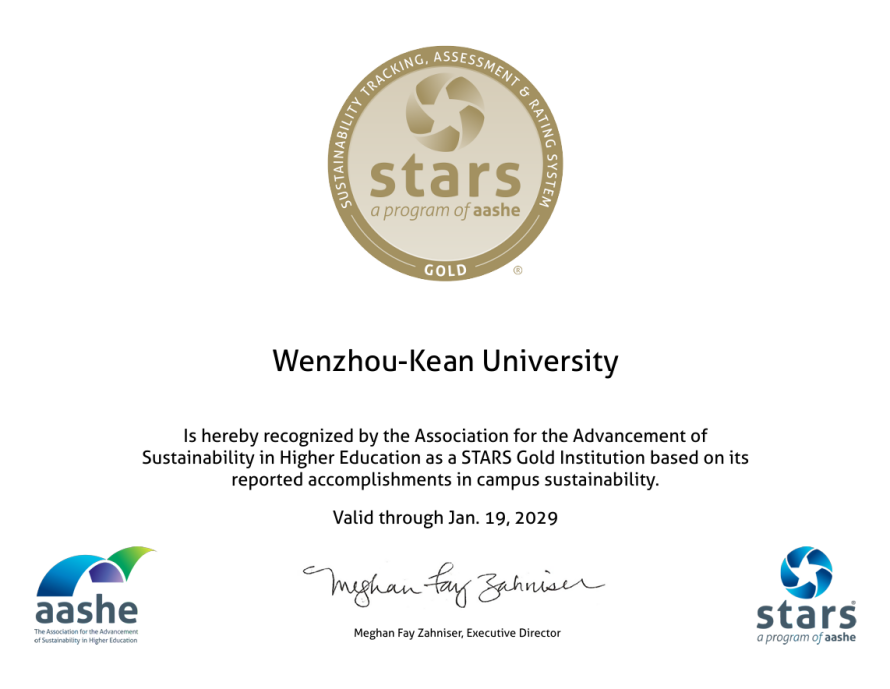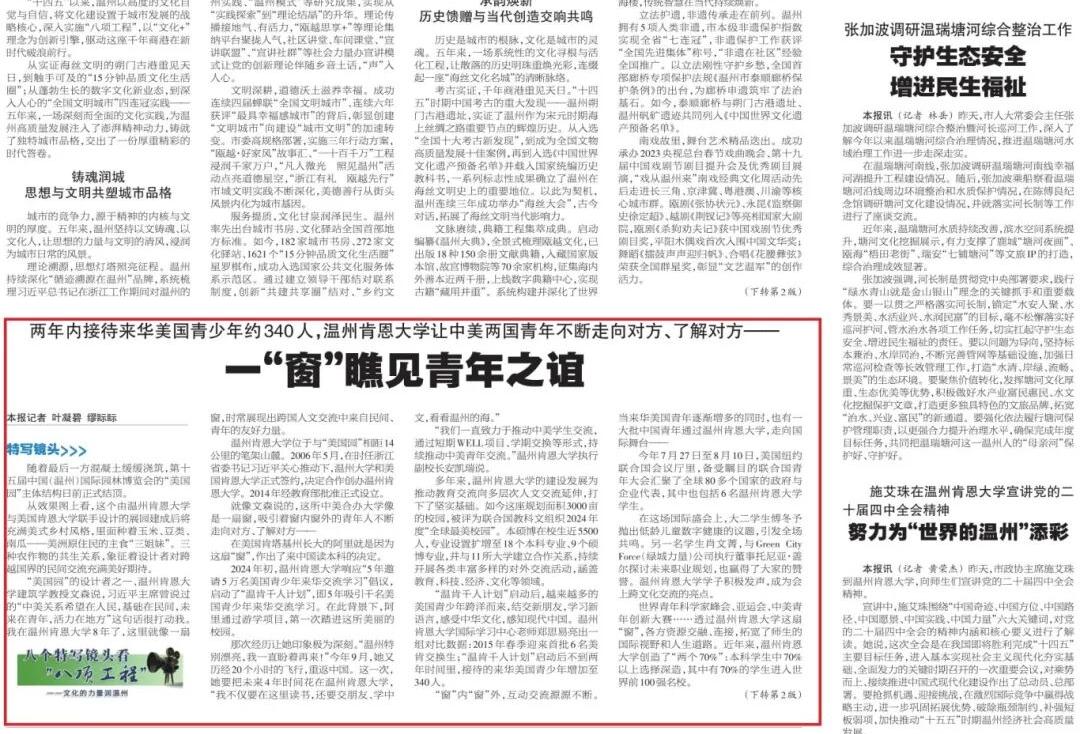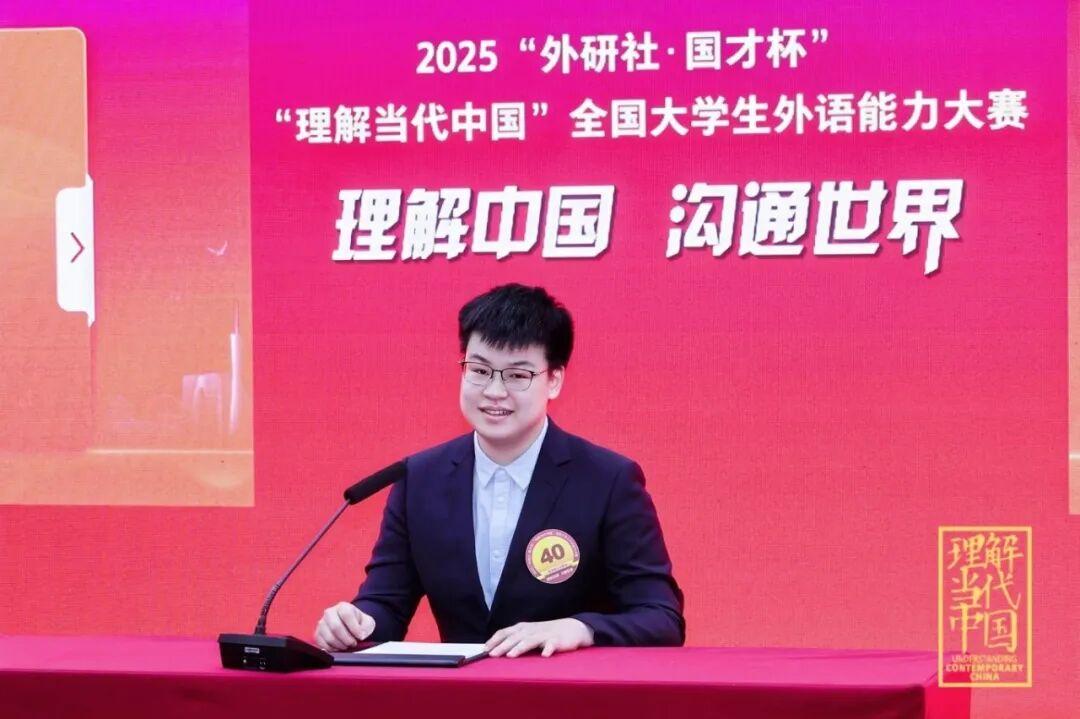【Wenzhou Daily】The Kean Garden Creation Records
On July 20, Wenzhou Daily published the Kean Garden Creation Records, an article written by Wang Beijiao, Party Secretary and Chairman of the Board of Directors of Wenzhou-Kean University. The article was also reprinted by Xuexi.cn.
By recording the creation process of Kean Garden on campus, this article reflects the fact that Wenzhou-Kean University is rooted in China and always adheres to the intent of building up moral integrity and cultivating socialist builders and successors with all-around ability in areas such as morals, intelligence, physical fitness, work, and aesthetics.
Following is the full text:
In early summer, Wenzhou-Kean University (WKU) just saw off more than 600 graduates in 2022. At the same time, the first mature crops of Kean Garden are harvested on the campus. These fruits are the result of WKU students and teachers after choosing seedlings, sowing, watering, and fertilizing.
Kean Garden lies in the north of the campus, which used to be a barren field of weeds. Over the past three months, the teachers and students have made joint investigations, selected the site, plowed earth, pulled weeds, removed rocks, made ditches, and tied hedgers. Now, they have personally built this idyllic scene of “hillside fields are full of lush vegetation and misty and rainy scenery is accompanied with voices of cuckoos”.
Wenzhou-Kean University (WKU) is a province-state friendship project between the Zhejiang Province and New Jersey in the United States. It is the mission of WKU to introduce quality educational resources in the U.S. to China. In addition, the intent of WKU is to build up moral integrity and cultivate socialist builders and successors with all-around ability in areas such as morals, intelligence, physical fitness, work, and aesthetics. The students of Sino-foreign cooperative universities need a way to experience the hard work of trampling on the earth and creating life with sweat while expanding their horizons and making great efforts on the international stage.
In April of this year, WKU decided to launch a series of activities on “Labor Education” in order to sincerely follow the spirit of the Opinions of the State Council of the Central Committee of the Communist Party of China on Strengthening All-round Labor Education in Universities and Primary Schools in the New Era. Kean Garden came into being on campus amid cheers from Chinese and foreign teachers and students.
More than 100 students signed up on the first day of the labor competition. For many students, farming was only the screen on television, and they did not know what to do at the beginning in real practice. The post-2000s generation cried out “confused” and “impossible” with seedlings of common fruits and vegetables such as sponge gourds, yellow okra, cherry tomato, and watermelon. Everything is difficult at first. The first planting was finally completed with the explanation and guidance of WKU’s professional teachers.
After that, young students often appeared in the Garden. In their labor, they have mastered the labor essentials of weeding and fertilizing and also learned agricultural proverbs such as “Plant melons and beans before and after the Grain Rain” and “If there are rainbows in May and there will be no harvest of melon and fruit”, and gradually mastered the scientific essentials of farming labor. Instead of just learning from the classrooms, these students expand the space for communication from the classrooms to the fields, from foreign professors from all over the world to native-born laborers.
The Garden is the extension of educational connotation. Jin Rongxuan, a famous scholar of modern education in Wenzhou, put forward the educational concept of “serving the community and practicing the work” and attached great importance to the cultivation of the students’ labor habits, character, practical ability, and goal of learning. Labor education and production education are the answers he left for everyone. During farm work, the students not only strengthen their physique but also cultivate many good qualities such as diligence, thrift, cooperation, and responsibility. In fact, farm work is not an after-school pastime. Labor is not the main purpose but a means to activate the simple spirit of struggle, bring this spirit to the international community, and tell a good China story.
The Garden is the extension of the essence of education. The essence of education is to awaken and develop the human heart and realize the all-around development through the way of “one tree shaking another tree”. Currently, WKU requires students to carry out 40 hours of extracurricular expansion, including 20 hours of labor education. Great importance is attached to labor education in both Chinese and foreign educational theories. As a Sign-foreign cooperative university, WKU actively carries out labor education, hoping that through labor experience, students will respect labor, love labor, advocate labor, master certain labor skills, cultivate a tough spirit to face difficulties, and learn to truly love life.
The 3,000mu planned land where WKU is located used to be the village cottage of Li’ao, where the villagers lived and thrived. Now, this land is transferred to WKU, and the mission of the land has also changed from growing crops to cultivating talents. This seedling of “international education” takes root and grows here. In the past decade of operation, in the way of “studying abroad at home”, WKU has sent more than 2,700 excellent graduates of seven class years who are familiar with international rules and have feelings of home and country. Among them, 42.05% enter the Top 50 universities in the world, and about 61.5% enter the Top 100 universities in the world. The rate of postgraduate enrollment remained at the forefront in China’s universities. Compared with the large cost of studying abroad, WKU’s preferential fees have saved the country nearly USD 1 billion in foreign exchange for education and nearly USD 650 million for families.
Lin Mingze, born in Li’ao, is a graduate of 2022 at WKU. As he said on the graduation ceremony stage: “I have witnessed the modern facilities, international community, and unlimited possibilities that WKU brings to this small village.”
In the next month, the campus of WKU will meet more than 1,000 freshmen of 2022 from 22 provinces and cities in China. These “seedlings” are waiting to thrive under the nourishment of WKU’s inclusive international education.
- Wenzhou-Kean University Spearheading Sustainability in Higher Education in Asia and in China, Awarded the AASHE STARS Gold-Certified in Sustainability

- Media Report | Wenzhou Daily: A Window into Friendship Between Chinese and U.S. Youths Wenzhou-Kean University Welcomes 340 Young Americans in Two Years

- WKU Student wins first prize in a national English speech contest: What is his answer to the value of boredom?


